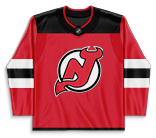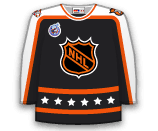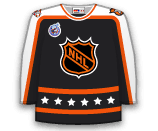
NHL Hockey Player News





Slavin had three goals, eight assists, 16 PIMs and a -13 plus/minus through 51 games with the Rockford IceHogs (AHL) but has been dealt to Anaheim for Hunter Drew on Thursday.

Drew has five goals, six assists, 92 PIMs and a -14 plus/minus through 44 games played with the San Deigo Gulls (AHL) and has been traded to Chicago for Josiah Slavin Wednesday.


Mayo failed to pick up a point across 15 games played with Arizona but had seven SOG, eight PIMs and a -8 plus/minus and has now been dealt to the Vegas Golden Knights for a 2023 fifth-round pick and Shea Weber's contract. Mayo will report to Henderson (AHL) Wednesday, as the defenseman also had two goals and seven points across 26 games with the Tucson Roadrunners (AHL) prior to the deal.



Gaudette signed a one-year deal with the Maple Leafs in July and has spent the entire season in the AHL. In 40 games with the Marlies, Gaudette racked up 20 goals and 14 assists (34 points). With two centres being dealt off the Blues' roster, there's a chance that Gaudette reports to St. Louis. The 26-year-old has 70 points (27G / 43A) in 218 career NHL games with the Canucks, Blackhawks and Senators.

Abramov was a fourth-round pick (No.115 overall) in 2019 and has picked up 16 points (6G / 10A) in 34 AHL games this season. Since turning pro last year, Abramov has compiled 13 goals and 31 assist (44 points) in 100 AHL games.

Acciari signed a one-year deal ($1.25M) with the Blues in the offseason and has 10 goals and eight assists (18 points) in 54 games this season. Acciari is physical two-way, bottom-6 forward that will help on the penalty kill.

O'Reilly is in the final year of a seven-year deal that carries a $7.5 million cap hit. In the trade, the Blues retained 50 percent of O'Reilly's contract and the Wild retained 25 percent, so the Maple Leafs get him at a $1.875M cap hit. O'Reilly's offensive game has struggled this season, scoring just 12 goals with seven assists (19 points) in 40 games. He brings an excellent two-way game and the ability to play centre in a shutdown role or the wing in an offensive role. His fantasy stock could rise if he ends up on the wing with John Tavares and Mitch Marner.

Skinner has three goals, five assists, 12 PIMs and a +9 plus/minus with the Jacksonville Icemen (ECHL) and has been dealt alongside Sammy Blais, a conditional 2023 first-round pick and a conditional 2024 fourth-round pick from the Rangers to St. Louis for Vladimir Tarasenko and Niko Mikkola.

Blais has five assists, 31 SOG, eight PIMs and a +1 plus/minus through 40 games with the Rangers this season but will return to St. Louis where he played his first four NHL seasons. He was traded alongside Hunter Skinner, a conditional 2023 first-round pick and a conditional 2024 fourth-round pick from the Rangers for Vladimir Tarasenko and Niko Mikkola.

Mikkola has three assists, 31 SOG, 35 PIMs and a +2 plus/minus through 50 games with St. Louis and has been traded alongside Vladimir Tarasenko from the Blues for Sammy Blais, Hunter Skinner, a conditional 2023 first-round pick and a conditional 2024 fourth-round pick.

Tarasenko had 10 goals, 19 assists, 103 SOG, and a -18 plus/minus through 38 games with St. Louis but has been traded along with Niko Mikkola from the Blues to the New York Rangers for Sammy Blais, Hunter Skinner, a conditional 2023 first-round pick and a conditional 2024 fourth-round pick.

Megna was originally a seventh-round pick of the Ducks in 2012 but has been with the Sharks organization since 2021. This season, Megna has scored one goal with 11 assists (12 points) in 48 games. The Kraken have two 2023 fourth-round picks, their own and Colorado's. They must declare which one goes to San Jose by June 15.

NHL Trade Tracker
NHL Trade Rules
Salary Cap
Roster Limit
NHL Trade Deadline
Understanding the Strategy Behind NHL Trades
How NHL Trades Impact Sports Betting
NHL Trades FAQs
NHL trades are decided between two or more team general managers. The front office’s job is building a winning team. Building a winning team means discussing trades with other general managers across the league.
During the NHL regular season, players can be traded up until the trade deadline. The deadline is the official cutoff point for when teams can no longer make moves between each other. Players can also be traded throughout the offseason.
Teams trade players in hockey for a variety of reasons, but generally, it is done to find success, whether that is in the short term or long term. Teams may trade their top players in search of draft picks if they are undergoing a rebuild, whereas contending teams may look to acquire talent to boost their playoff chances.
Trades are a common occurrence throughout the NHL and happen often. Some years feature less trades than others, it all depends on each teams needs and the availability of attractive talent.